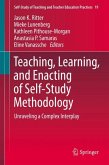This book examines the ongoing changes initially caused by the COVID-19 pandemic and the future prospects of teaching and learning in higher education institutions. It focuses on the impact of online education on issues of learning equity and epistemic justice. The transition from traditional face-to-face teaching to remote learning has exacerbated existing inequalities in epistemological access among higher education students, despite the shortcomings of the former in this regard. The book features essays by African academics who reflect on the challenges of epistemological access during the sudden shift to hybrid, blended and remote teaching and learning. It specifically explores the question of equitable learning in diverse home contexts, drawing on both theoretical and empirical studies conducted by the authors in South African universities and the region. The chapters employ the conceptual framework of epistemic injustice to define and explore various forms of such injustice, providing a basis for analyzing the implications of the transition to online pedagogy.
Bitte wählen Sie Ihr Anliegen aus.
Rechnungen
Retourenschein anfordern
Bestellstatus
Storno








